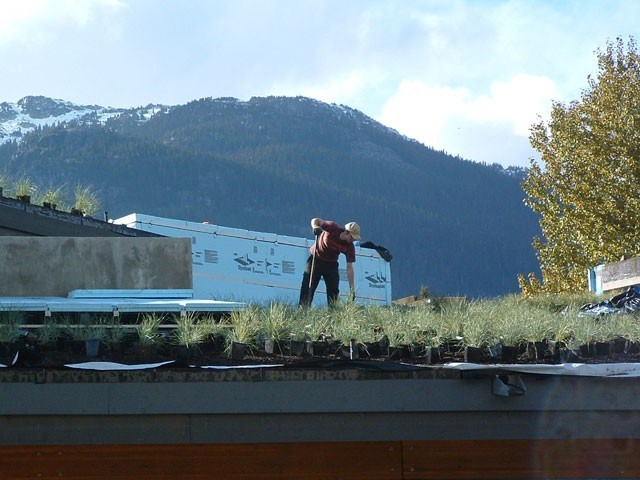Whistler property owners could be facing tax increases as the municipality struggles to balance its 2008 budget.
It’s still very early in the process, cautioned Mayor Ken Melamed, but the spectre of increasing property taxes has raised its head at the council table.
“That’s an unpalatable option,” said the mayor of increasing property taxes. “(It’s) an option.”
No one factor is causing the strain, which became obvious during this week’s council meeting. But the combination of rising labour costs, rising construction costs and the hit from the provincial government’s recent decision on Class 1/6 properties are all playing a role, leaving council with the struggle of trying to balance a tight budget.
Council made several allusions to the tough budgeting process at Monday’s meeting.
It was the reason Councillor Nancy Wilhelm-Morden gave for opposing the new Whistler Centre for Sustainability (see related story on page XX.)
To get the centre — which will be virtual until after the 2010 Winter Games — off the ground the municipality has pledged a grant of $120,000 annually for the next five years, for a total of $600,000.
“I just don’t think we should be taking on more financial requirements and financial obligations at this time,” said Wilhelm-Morden, who reluctantly withheld her support for the centre.
Later, Councillor Tim Wake also addressed the problem, during a small housekeeping amendment in what he said was an effort to keep the community informed.
“We are having struggles with the five year financial plan,” he said briefly.
He pointed specifically to the new Class 1/6 tax legislation, approved by the provincial government in April, as having a significant impact. That legislation grandfathered all Class 1 hotel/condo owners, allowing them to pay the residential tax rate, while those units assessed at Class 6, the much higher commercial rate, would begin to pay a blend of commercial and residential rates based on the amount of commercial use of that property.
While the municipality will not know the exact impact of that change until the end of this month, it is estimated to be between a $1.8 million and $2.5 million hit to the budget.
And while that $2 million hit is significant, it’s not the only thing exacerbating the budgeting process.
“It’s hard to put a finger on one thing only,” said Melamed after the meeting. “There are a number of other things that are causing pressure.”
Rising construction costs are a significant concern, particularly at a time when the municipality is in one of its busiest, and most expensive, capital spending years.
One of the biggest projects in the works is the multi-million expansion of the wastewater treatment facility (see related story on page XX).
While the contract for the plant expansion itself has been set at a fixed price, other factors are causing the budget to increase.
The current Five Year Financial Plan includes a budget line item of $33 million for the project. In July, council learned the project would be in the order of $45 million.
That number has now jumped to $51.6 million, due in large part to the purchase of the composting system from Carney’s Waste Services. The composting system is now included in the wastewater treatment plant budget.
When asked how council will pay for it, the mayor replied: “We don’t know yet…. That’s one of the challenges we have in the coming budget.”
Like increasing construction costs, increasing labour costs are
also playing a role in this budget.
Roughly 75 per cent of the municipal
budget is earmarked for wages.
“We pay our staff based on the GVRD (Greater Vancouver Regional District) pay scale,” said Melamed. “We know that those contracts have just been negotiated, Vancouver has finally settled. And so we will know very shortly what our wage increases are going to be. We pay them retroactively to the GVRD pay scale. We’ve tried to budget already. We’ve set aside some money to allow for staffing increased costs.”
And while increasing property taxes or slashing programs is never a popular political move, it’s up for discussion as council looks to balance the upcoming budget.
Sitting at the council table for more than a decade, as both councillor and mayor, Melamed has only seen property taxes increase once, over and above the cost of inflation, and that was by just one per cent in the mid-90s.
“It’s a fact of life in other communities,” he said. “Whistler residents can consider themselves fortunate that through good fiscal planning and the success of the resort, Whistler taxpayers have been spared from tax increases.”
Council has been doing comparisons with other communities and has found that the municipal average tax increases over the last five years are in the realm of four to five per cent. Whistler’s increases have stuck to inflation at roughly two per cent.
“Nobody likes taxes to begin with,” admitted the mayor. “Tax increases they like less.”
Council is hoping to have a preliminary budget ready for public review by December. There will be community consultation before the budget is approved. The latest it can be approved is May 2008.




